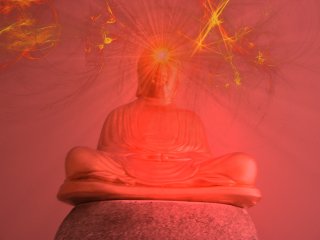PIETY and a knowledge of Buddhist scriptures used to be just about the only qualifications needed to become a Chinese monk. Now computer skills, foreign language ability and a degree in financial management are also desirable.
Three decades after temples were destroyed and scriptures burned during the Cultural Revolution, Buddhism is making a comeback in China. And, like most things in the super-competitive, rapidly developing country, it has become both big business and a field in which people are eager to get ahead.
That's creating a new breed of multi-tasking, tech-savvy, upwardly mobile monks.
"Our recruiting process is highly competitive," said Hui Jue, the deputy general manager of the 120-year-old Jade Buddha Temple in central Shanghai, who recently completed a master of business administration degree at Jiaotong University.
Fifteen monks from his temple have been on foreign language courses at the Shanghai International Studies University, and another batch have started MBA studies in Jiaotong's business school.
Such skills are necessary, Mr Hui believes, for the temple to spread Buddhist teachings in the modern world and to manage its growing business interests. As well as its grounds, Jade Buddha owns a vegetarian restaurant, a four-star hotel, a seven-floor office building and a food factory.
The restaurant and the food factory I can understand, since the monks are vegetarian and have special dietary requirements, but why would they need a four-star hotel?
It goes without saying that one cannot mention Buddhism in China without referring to the famous Shaolin Temple:
The ancient Shaolin Temple in Henan province has capitalised on its reputation as a birthplace of the martial arts to host international guests and stage kung fu displays around the world.
It owns a martial arts training school and Shaolin Development, a company producing vegetarian snacks and Zen tea. It also co-operates with entertainment companies in film-making and online game production.
Guangxiao Temple in Guangdong province has launched online worshipping, so users can offer virtual incense, fruit and flowers to electronic Buddhas.
This picture, which accompanied the article, shows what appears to be a common computer desk as one might find in any workplace. What's unusual is that the picture is taken in Shaolin Temple, and person sitting at the desk is a monk, who is just about to go online:

A monk at China's Shaolin Temple, which helps produce computer games, logs on to the internet.
Picture: Cancan Chu/Getty Images
南無阿彌陀佛

No comments:
Post a Comment